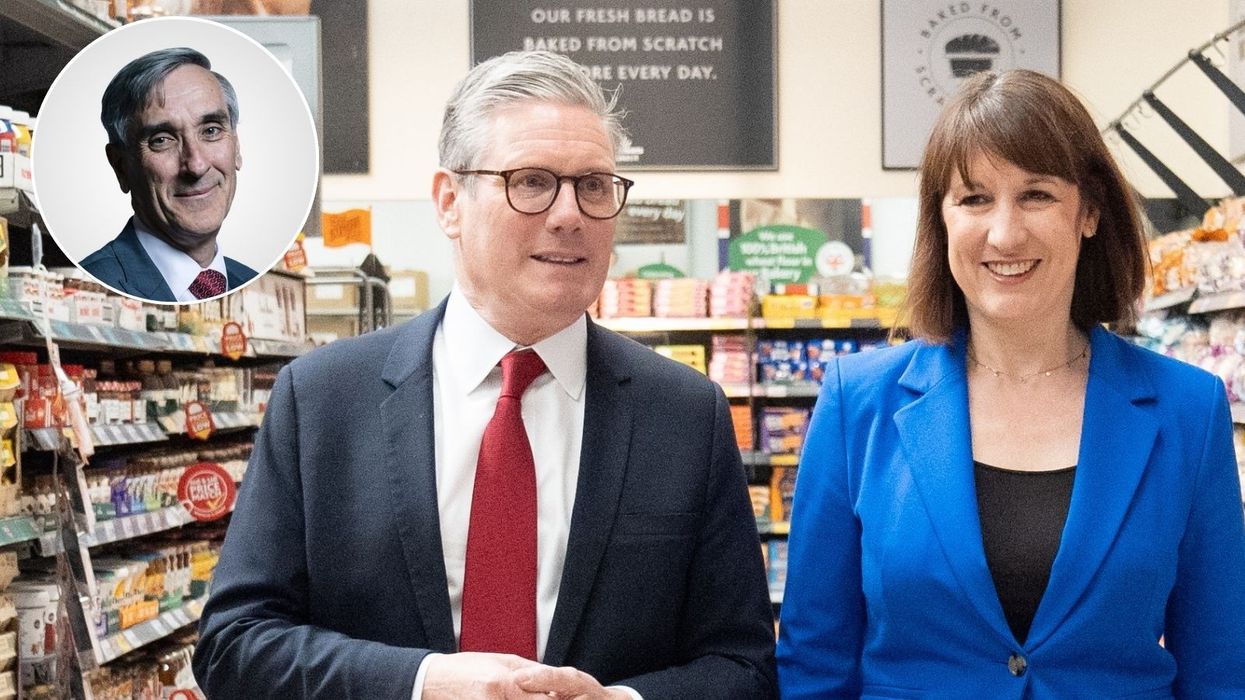'Labour has made a blizzard of unhelpful changes and is taking steps to slow UK growth' - Sir John Redwood

Sir John Redwood this Government is about 'spin'
|PA

Sir John Redwood is a former Conservative MP for Wokingham
Don't Miss
Most Read
Latest
50 days into this government and we now know what it is about. Spin. It is about messaging, tackling problems with sound bites and closing down opposing views.
The government has been busy trashing the past, identifying its enemies and planning new laws to limit free speech.
We are told things were much worse than they expected. We learn they are solving the strikes with larger pay awards.
We are told the only law and order problems come from the far right and the government will ensure we build 300,000 homes a year.
Fake news is under scrutiny but government spin is apparently true.
I had wanted it to be better and wished it well. 50 days on and the reality is so different.
Instead of rolling out a growth strategy, it has taken steps to slow the growth. The irony is that after the disasters of lockdown and the Bank of England inspired high inflation, the Conservative government was cast aside the moment inflation came down to two per cent.
It lost at the end of a half year when we were at last the fastest growing G7 economy. If only Labour could keep that up.
Instead, there has been a blizzard of unhelpful changes.
The very productive North Sea oil and gas industry will be brought to a premature halt as the government bans new wells and fields.
The successful UK car plants making diesel and petrol cars which people like will face an early ban on their products accelerating closure.
There are no plans to replace all but one of our nuclear power stations due to shutdown.
They will press ahead with the closure of all new steel-making just like the previous government. VAT on school fees will close and slim independent schools.
Higher Non-Dom taxes will push more rich out of the UK, losing us their investment, spending and jobs. I could give you a longer list.
The idea that the government would be financially prudent to avoid a 1976 Labour-style trip to the IMF to stave off bankruptcy or a 2008-09 banking crash and recession was thrown out of the window in the first few weeks.
The Chancellor has announced more than £10billion of unfunded spending increases. She has broken her word to explain how this would be paid for.
She did not instruct the OBR to produce an independent view of what these increases will do to the deficit and to the economy. Where is the promised OBR forecast?
Worse still, the extra spending is mainly for inflationary pay awards.
There is a danger that we go back to the grisly world of public sector Unions playing leapfrog with each other's settlements as they demand comparability awards and seek to restore pay differentials.
There are no plans to boost public service productivity which fell badly on lockdown and has not recovered.
A government wanting growth and financial prudence would have negotiated something for something pay deals, boosting pay for smarter working.
Much could be saved if the government did unlock a surge of private sector investment. To do that it needs to make it more worthwhile to save, invest, set up a business and grow a company.
Instead, the foreign rich are taxed away from our shores, losing us investment. Successful large energy companies face higher windfall taxes.
Water companies are fined more for not installing more new pipes in past years.
MORE FROM GBN MEMBERSHIP:
Private train companies are being transferred into the state. With state roads and railway lines, highly regulated water companies and renewable power suffering from grid shortage, it will be difficult to see a big private sector boost.
Expect the government to spin the harder if it fails to control pay and spending, and does not enjoy a wave of new investment.
We will not get the promised faster growth and low inflation if the Chancellor goes through a series of tax rises on pensions, capital gains, inheritance, dearer homes and the rest.
These tax rises will slow growth more, lose us talent, and fail to meet the burgeoning bills of a badly run public sector.










